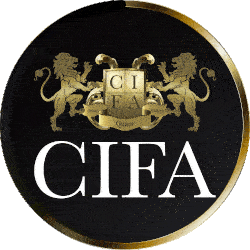


In today’s highly regulated business environment, organizations must balance growth ambitions with the responsibility of maintaining transparency, ethical practices, and sound financial reporting. The role of compliance and accountancy has therefore become more significant than ever before. Introduction to Compliance and Accountancy for Business (ICAB) Reviews provides insight into how companies can strengthen their frameworks, avoid regulatory pitfalls, and build trust with stakeholders. For institutions such as cifa.ac, ICAB reviews serve as a comprehensive approach to evaluating both compliance procedures and accounting systems, ensuring that business practices are sustainable and resilient.
Compliance forms the foundation of organizational governance. It refers to adherence to laws, industry standards, and internal policies that govern how a company operates. For businesses operating across multiple jurisdictions, compliance is not only about following local laws but also about aligning with global standards. Reviews in this area are designed to assess whether companies have adequate controls to detect risks, manage reporting obligations, and promote accountability at every level of the organization. An Introduction to Compliance and Accountancy for Business (ICAB) Reviews highlights the importance of embedding compliance into the culture of the business so that ethical conduct is consistent and sustainable.
While compliance ensures that organizations meet legal and regulatory expectations, accountancy provides the financial transparency that underpins business credibility. Accurate financial reporting builds confidence among investors, regulators, and clients. Accountancy also ensures that decision-makers have reliable data when planning growth strategies. ICAB reviews evaluate how financial statements are prepared, how internal controls are maintained, and how risks such as fraud or mismanagement are mitigated. For cifa.ac, integrating accountancy within compliance reviews creates a holistic approach that strengthens both regulatory adherence and financial integrity.
In a rapidly changing economic environment, businesses face growing pressure from regulators, investors, and the public to operate responsibly. ICAB reviews provide organizations with a structured assessment of how well they are balancing compliance obligations with sound financial management. Reviews highlight gaps in reporting systems, reveal weaknesses in internal policies, and provide recommendations for improvements. For cifa.ac, the benefits go beyond regulatory compliance. They extend into building trust with stakeholders, protecting reputation, and ensuring long-term operational resilience.
An Introduction to Compliance and Accountancy for Business (ICAB) Reviews explains that these evaluations typically cover a broad range of areas. Compliance aspects include the monitoring of legal obligations, evaluation of governance structures, and examination of ethical business practices. On the accountancy side, reviews analyze the accuracy of financial records, the strength of auditing processes, and the reliability of internal financial controls. Taken together, these reviews create a clear picture of whether a business is managing its responsibilities effectively and transparently.
Although ICAB reviews provide valuable insights, businesses often face significant challenges in maintaining consistent standards. Regulations change frequently, making it difficult for organizations to keep policies fully up to date. The globalization of business operations adds complexity, as different countries may apply varying rules and standards. At the same time, the demand for greater transparency puts pressure on companies to deliver accurate reporting quickly and reliably. For cifa.ac, the solution lies in proactive monitoring, continuous training, and adopting technologies that simplify compliance and accountancy processes.
Technology plays a transformative role in modern ICAB reviews. Automated compliance tools can track regulatory changes and integrate them into company policies. Advanced accounting software ensures accuracy in financial reporting and reduces the risk of errors. Data analytics can identify unusual financial patterns that might indicate fraud or mismanagement. By integrating technology into compliance and accountancy systems, businesses like cifa.ac can improve efficiency, reduce costs, and maintain stronger oversight across all operations.
Trust is one of the most valuable assets for any business. Stakeholders, investors, and clients all expect transparency, integrity, and accountability. ICAB reviews are instrumental in building this trust because they provide an independent assessment of whether a company is meeting its compliance and financial obligations. For cifa.ac, the outcome of these reviews is not only about fulfilling regulations but also about demonstrating commitment to ethical business practices. This positions the organization as a responsible leader in its sector, capable of sustaining long-term growth.
The future of compliance and accountancy reviews will continue to evolve as regulatory expectations grow and technology advances. Artificial intelligence, blockchain, and cloud-based platforms are set to become increasingly important in ensuring accurate and efficient reporting. At the same time, regulators are demanding greater levels of accountability and transparency. Businesses that embrace innovation while maintaining strong governance frameworks will be better positioned to thrive. For cifa.ac, the future of ICAB reviews represents an opportunity to lead by example, combining compliance excellence with financial strength.
Introduction to Compliance and Accountancy for Business (ICAB) Reviews illustrates the vital role that structured evaluations play in modern business. They help organizations balance legal requirements with financial accountability, providing reassurance to regulators, investors, and clients alike. For cifa.ac, these reviews are not just a regulatory necessity but a strategic tool that enhances credibility, protects reputation, and supports sustainable growth. As the business landscape becomes more complex, ICAB reviews will remain essential for ensuring that companies operate responsibly, transparently, and with integrity.
0 comments